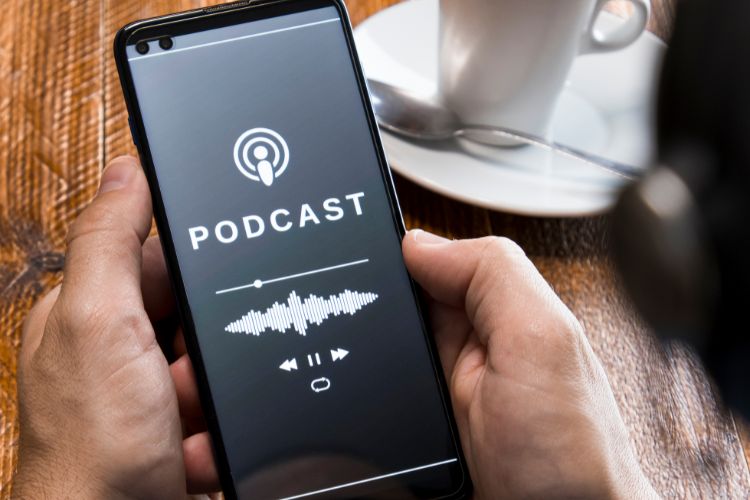Do you ever find yourself humming a catchy tune you heard earlier? Or maybe you remember a friend’s phone number better if you repeat it out loud? Do lectures and instructions stick with you more after you’ve discussed them with classmates? If so, these are signs that you might benefit from auditory learning tips! Auditory learners thrive when information is presented through sound. Let’s explore ways to harness your auditory strengths and supercharge your learning.
What is Auditory Learning?

Auditory learners thrive on sound. They excel at learning through lectures, podcasts, audiobooks, and discussions. Here’s a breakdown of what auditory learning entails:
- Learning through listening: Your brain processes and understands information best when you hear it explained.
- Verbal reinforcement: Talking through concepts, explaining them to others, or even reciting information out loud solidifies your grasp of the material.
- Ease with spoken instructions: You tend to follow verbal directions effortlessly compared to written guides.
10 Powerful Auditory Learning Strategies
Ready to amplify your learning potential? Let’s dive into specific strategies designed to supercharge your auditory strengths:
1. Record Lectures (with Permission)

- The Power of Recorded Lectures: Re-listening to lectures is like hitting the replay button on learning. It allows you to catch missed details, clarify complex concepts, and reinforce your understanding at your own pace.
- Seek Permission: Always ask your teachers or professors for permission before recording their lectures. Many educators are accommodating and understand that this strategy benefits different learning styles.
- Utilize Tech Tools: Use your smartphone’s voice recorder, a dedicated digital recorder, or notetaking apps with recording features to capture the audio.
2. Participate Actively in Class Discussions

- Benefits of Engagement: Joining class discussions forces you to process information quickly, formulate your thoughts, and contribute verbally. This active participation strengthens your understanding and retention of the material.
- Raise Your Hand: Don’t be afraid to speak up! Ask questions, share your ideas, and respectfully engage with your classmates and teachers.
- Lead Study Groups: Volunteer to lead a study group or discussion session. This will give you a platform to guide the conversation and further solidify your knowledge.
Helpful Hint:
Prepare Talking Points: If you get nervous speaking in class, jot down some key points or questions beforehand. This will give you a starting point for your contributions.
3. Turn Reading into Audio Experiences

- Text-to-Speech Tools: Transform written text into audio files using specialized software or online applications. Listening instead of reading can be a game-changer for auditory learners, especially when tackling dense textbooks or lengthy articles.
- Narrate Your Notes: Read your notes aloud and record them. Listening to your own voice explaining concepts can reinforce your understanding.
- Explore Audiobooks: Supplement your learning with audiobooks. There’s an abundance of educational audiobooks on various subjects waiting to be explored!
4. Create Study Jingles or Rhymes

- The Power of Music and Memory: Setting information to catchy melodies or simple rhymes utilizes the power of music to enhance your recall. This technique is especially effective for memorizing formulas, historical facts, vocabulary, or scientific concepts.
- Get Creative!: Compose short jingles, turn lists into silly songs, or use popular tunes to remember new information.
You don’t need to have musical talent; the goal is to create associations that stick in your mind.
5. Find Educational Podcasts and Audiobooks

- Supplement Your Curriculum: Podcasts and audiobooks provide a wealth of informative and engaging audio content. Discover podcasts that align with your subjects or interests, and supplement your textbooks with audiobooks on a variety of topics.
- Available Resources: Explore platforms like Spotify, Audible, or Podcast apps for educational content. Many libraries also offer audiobooks and e-books you can access for free.
- Active Listening: Don’t just passively listen. Take notes, pause and rewind when needed, and actively engage with the material for optimal learning.
Stats:
Research suggests that audiobooks can be as effective as traditional reading for comprehension and learning, making them a valuable tool for auditory learners.
6. Use Mnemonic Devices
- Memory Boosters: Mnemonic devices are creative techniques that use patterns, acronyms, or rhymes to aid in memorization.
- Popular Examples: Think of ROYGBIV to remember the colors of the rainbow or PEMDAS (Parentheses, Exponents, Multiplication, Division, Addition, Subtraction) for the order of operations in mathematics.
- Create Your Own: Get inventive with your mnemonic devices! Turn definitions, lists, or concepts into short, memorable phrases that you can easily recall.
7. Teach a Friend or Form a Study Group

- Learning Through Teaching: Explaining concepts to others forces you to organize your thoughts, solidify your understanding, and identify any gaps in your own knowledge.
- Collaborative Learning: Study groups provide a platform to discuss course material, exchange ideas, and benefit from different perspectives. Find study partners or form study groups with classmates who share your learning style.
- Become the “Teacher”: Volunteer to lead a discussion, create practice questions or quizzes for your study group, or explain a challenging concept to others.
8. Leverage Role-Playing and Debates

Interactive Learning: Role-playing historical events, simulating scientific experiments, or engaging in friendly debates with classmates allows you to process information from various viewpoints and test your understanding in a dynamic way.
Boost Critical Thinking: These activities encourage critical thinking, problem-solving, and the ability to defend your ideas with logic and evidence.
Find a Study Partner: Look for a classmate who enjoys interactive learning and collaborate on role-playing scenarios or mock debates.
9. Explore Audio Mind Maps
- Traditional Mind Maps: Mind maps are visual tools often used for brainstorming or organizing information. However, auditory learners can benefit from audio versions that incorporate spoken notes and explanations.
- Tech Tools for Mind Mapping: Several software programs offer mind-mapping features with audio recording capabilities. These tools allow you to capture key points, elaborate on concepts, and create a personalized audio mind map for enhanced learning.
- DIY Audio Mind Maps: If you don’t have access to specialized software, you can create a simple audio mind map using a note-taking application and a voice recorder. Organize your notes in a logical structure, then record yourself explaining each section in detail.
10. Find the Right Background Noise
- Focus with Sound: Some auditory learners find that specific background noises can improve focus and filter out distractions. This can be white noise, nature sounds, or even classical music.
- Experiment and Discover: The best background noise for you will depend on your individual preferences.
Experiment with different sounds to find what helps you concentrate and retain information most effectively.
Helpful Hint:
If you find background noise helpful, create playlists or use online noise generators to find sounds that work best for you during study sessions.
FAQs
Wrapping Up
Auditory learners possess a unique gift – the ability to absorb information through sound and verbal interaction. By understanding your strengths and utilizing the auditory learning tips we explored, you can optimize your learning experience and achieve academic success. Whether you’re listening to lectures, participating in discussions, or creating your own audio learning tools, focus on engaging with the world of sound around you.
